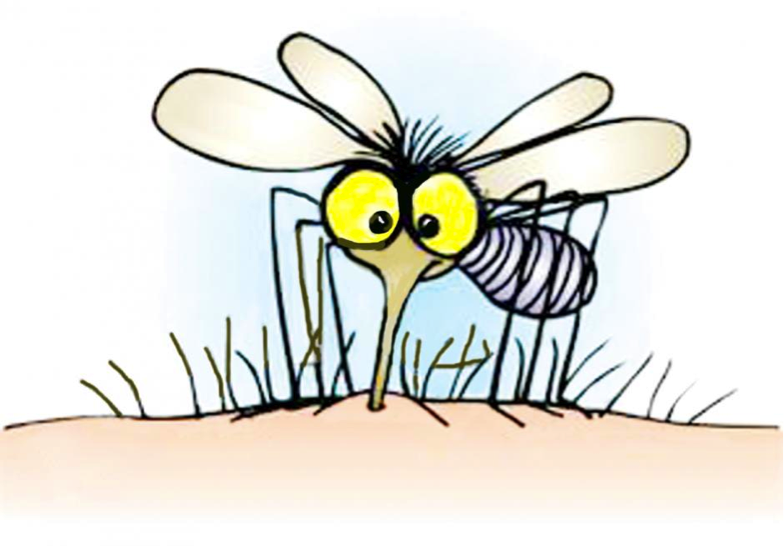GUEST EDITORIAL: Mosquito Control Is An Intensive Battle
Let us be clear that Mosquito Control’s focus is to keep the mosquito population at a minimum which is labor intensive and necessary to protect the health of both our residents and our visitors. Election season is upon us, and as Chairman and an 18 year elected commissioner at Florida keys Mosquito Control I would like to address some statements being made during this election season.
When I was elected to the FKMCD board there was a management change and a change of practices. These changes we put into place to control larvae (as opposed to blanket spraying insecticide for adult mosquitos) thus dramatically reducing biting adult mosquito numbers. In addition to the immediate health advantages, these changes resulted in saving County residents millions of tax dollars and reduced the use of adulticides (pesticides) by approximately 80%.
We average 60 adulticide and 130 larvicide missions annually. Adulticiding uses less than an ounce per acre, is highly regulated, and not sprayed over the National Marine Sanctuary. To control mosquito larvae, we use Bti, a naturally occurring bacteria. We use about 4.8 tons of Bti over land annually, and it is harmless to humans, pets, fish, and birds only targeting mosquito larvae. We do not disperse Bti over the open NMS waters.
FKMCD was the first in the nation to aerially disperse liquid Bti larvicide which is used over the island of Key West to control aedes aegypti on this densly populated island. FKMCD researchers worked with the manufacturer to design a product and dispersal method to safely and efficiently use this product over the densely populated area. Our staff entomologists and biologists are constantly monitoring the efficacy of this as well as the other FKMCD’s mosquito control programs, while researching new products to test effectiveness in our environment.
Mosquito commissioners can attend educational programs to learn what we use, why we use it, and how our entomologists, staff, and the state work together toward better mosquito control in our districts while protecting the environment. At this time, several of our commissioners have chosen not to attend these programs, while while Commissioner Shaw and I chose to expand our knowledge. Their lack of knowledge reflects in their decisions regarding budgets and staff reductions.
Last month’s budget limiting vote by Goodman, Bridges, and Cranny-Gage was contrary to the advise of director Doyle and our comptroller, and most likely will cause a shortfall in the upcoming year. Commissioner Shaw and I vocally opposed this unnecessary limitation so early in the crafting of our 2014-2015 annual budget, especially with 2.5 months of heavy mosquito control before our current fiscal year ends.
In the last 6 rainy weeks we have used an additional $ 400,000 of our chemical treatment reserves plus the cost of the mosquito control missions. If we continue to have heavy rain incidents, I am fairly certain that next year we will need to raise the millage rate significantly to replenish the reserves that will be pulled down this year to due to a limited budget.
Commissioner Goodman has suggested we borrow money for the construction of the Key West facility as we have been forced to relocate. I’m certain any lender will gladly give us money at their profitable interest rate. While borrowing money is a possibility that will incur interest charges, the mortgage on our new facility will need to be paid, resulting in a tax increase as the current budget could not support payments on the new building.
We need proper staffing and budget to continue our work; we do not need to keep cutting the budget to the point we can no longer effectively do our job. Reserves were tapped this year to balance the budget. A millage rate that maintained reserves while covering operating expenses for the next year would have cost a typical homeowner an additional .56 ¢ a month, or $ 6.45 per year.
Mosquito control is an intensive battle which takes manpower and an adequate budget. Our staffing is down over 20% and service and response to service requests has been reduced proportionately. Many employees are now doing the normal jobs of 2-3 staff members and they just do not have time to inspect properties as in the past. A further reduction in staffing will result in an increase of nuisance and potential disease carrying mosquitos.
We do not want more mosquitos in the Keys. Proper funding and staffing allows us to comfortably enjoy the paradise in which we reside and keep FKMCD doing their mandated mission. That is why I write this. For the record, I feel no public purpose is served by undercutting the budget and overtaxing the staff who work for Mosquito Control while restricting resources needed to do the work of this agency.
